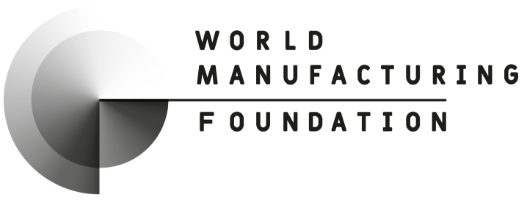

Industrial smart working in post-Covid manufacturing
- Manufacturing Platform
- Industrial smart working in post-Covid manufacturing
Industrial smart working in post-Covid manufacturing
Raffaella Cagliano
Full Professor of People Management and Organization
Politecnico di Milano
The COVID-19 outbreak has tremendously impacted the global economy and, particularly, the manufacturing sector has largely suffered from the pandemic. Manifold challenges have arisen for workers and work organization in the manufacturing sector which, consequently, led to different responses by companies and to new practices being implemented.
In this context, the World Manufacturing Foundation launched a new initiative, “Back to the future – Manufacturing beyond COVID-19”, which aims at capturing “back to the future” practices in the manufacturing industry.
In this initiative, the new normal is scrutinized from a multi-disciplinary perspective and covering a wide variety of topics. In particular, four main pillars within the industrial systems are explored, i.e. people, policy, productivity, preparedness. As such, the initiative anticipates the main directions of change, evaluates the economic and social impact of the new normal and aims at finding solutions to boost the post-COVID manufacturing recovery.
A number of expert groups will contribute to the realization of a White Paper – to be presented at the World Manufacturing Forum 2020 – highlighting the best “back to the future” practices of the manufacturing sector after the COVID-19 outbreak.
The Industrial Smart Working expert panel is one of the teams working in the “Back to the future” initiative and aims at discussing the challenges and responses of manufacturing companies to the need of remote working, social distancing and health and safety monitoring coming from the COVID-19 pandemic.
“Industrial Smart Working” pertains to changes in the work and workplace that allow higher flexibility in work place, time and tools, but also higher quality of work and workers protection and safety. While the concept of smart (of flexible) work was already normal in professional and clerical work, in manufacturing environments it was forcefully introduced in the course of the pandemic. As a consequence, manufacturing companies’ awareness about its challenges but also opportunities have grown significantly during recent months. Dealing with this increasingly important topic, the Industrial Smart Working expert panel focuses on manufacturing workers and the workplace in a post-COVID world to summarize emergent models and practices, their technological enablers but also the need for a new culture, management and leadership style.
Also, open challenges and support policies and actions are at the center of the debate. Moreover, the Industrial Smart Working expert panel pays particular attention to the human side because the COVID-19 implications and impacts are specifically fundamental for manufacturing workers. Hence, the expert panel addresses emergent new ways of working and collaborating in the manufacturing context.
The Industrial Smart Working expert panel collects insights on COVID-related developments and changes in the workplace and in the nature of work in the manufacturing context.
A number of real cases are put forward to understand the directions that companies are taking, the challenges that they are facing, the solutions that have been found, the impacts on productivity and performance. To provide a better understanding of Industrial Smart Working, the expert panel will elaborate a clear definition and will specify its meaning from various perspectives. Key characteristics of Industrial Smart Working will be identified and, moreover, the role of digital technologies for the implementation of Industrial Smart Working will be highlighted. Additionally, the expert panel will shed light on the organizational, managerial, and cultural enablers of Industrial Smart Work and will examine its performance implications in the short-medium and long run. Particular attention is given to those workplace practices, models and new organizational settings that are proving to be effective and to allow good quality work, and thus are likely to become a best practice in the new normal.
The following questions are addressed:
- What are the key elements of Industrial Smart Working?
- What is the role of digital technologies such as IoT, AI, robotics, in the implementation of ISW?
- What are the organizational and cultural enablers of ISW?
- What are the main challenges to face and the best practices implemented by companies?
- What are the choices of ISW that are likely to become part of the “new normal” even after the pandemic will be over?
The objective of the Industrial Smart Working expert panel is to combine expert knowledge and research in order to offer top-quality, industry knowledge. We aim at fruitfully discussing the challenges and responses of manufacturing companies to the global pandemic.
Providing insights and recommendations on Industrial Smart Working is vitally needed because our understanding of it is still very limited, both in research and practice.
An international and multi-disciplinary group of seventeen leading professionals constitutes the expert panel. The participants are professionals in the area of manufacturing, work organization and the future of work. Experienced practitioners with distinctive know-how in the manufacturing industry and coming from different industries as well as highly-renowned scholars with diverse backgrounds, research interests and expertise collaborate in the Industrial Smart Working expert panel.
Discover more about Back to the Future: Manufacturing Beyond Covid-19